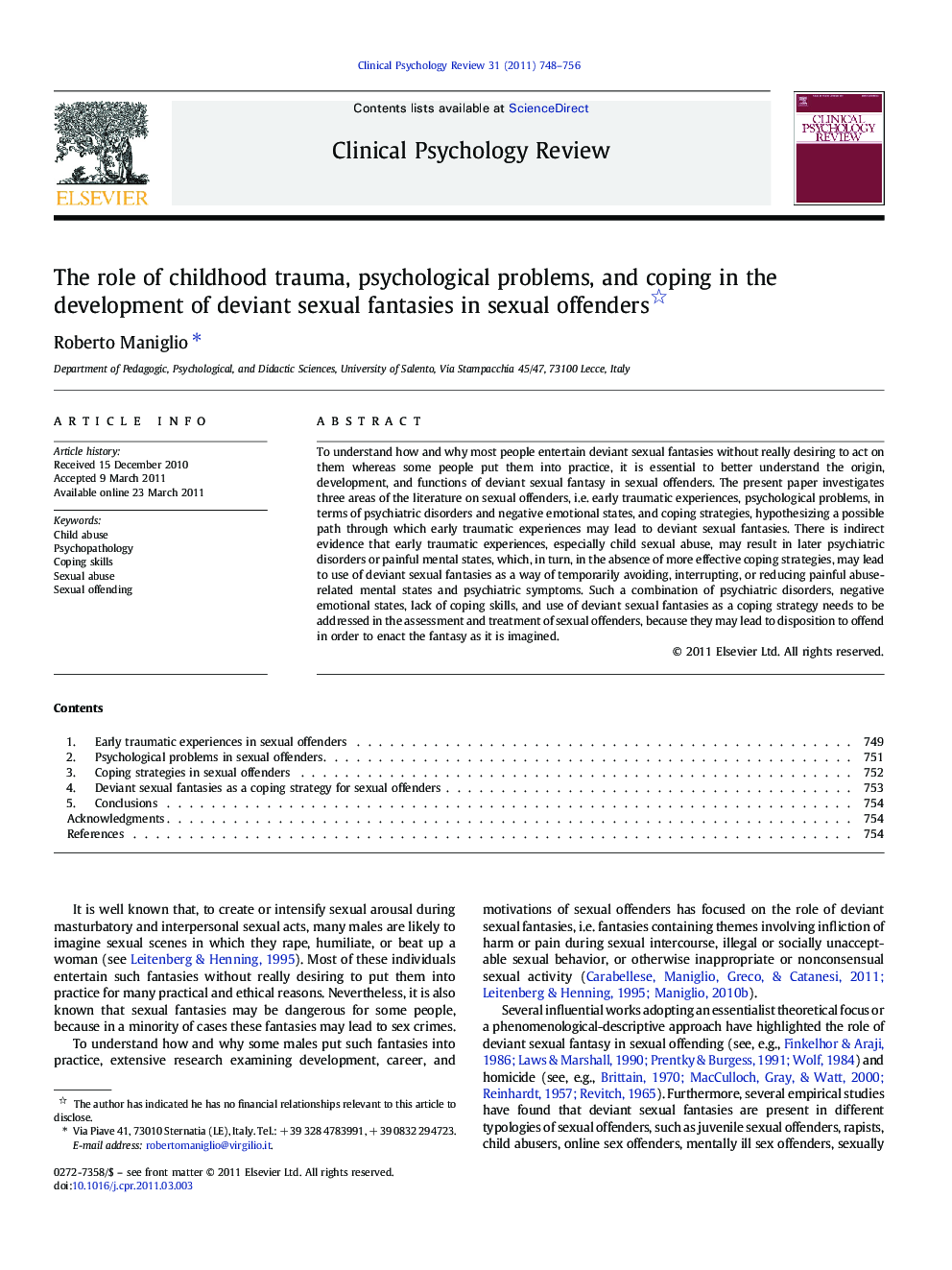| Article ID | Journal | Published Year | Pages | File Type |
|---|---|---|---|---|
| 903773 | Clinical Psychology Review | 2011 | 9 Pages |
To understand how and why most people entertain deviant sexual fantasies without really desiring to act on them whereas some people put them into practice, it is essential to better understand the origin, development, and functions of deviant sexual fantasy in sexual offenders. The present paper investigates three areas of the literature on sexual offenders, i.e. early traumatic experiences, psychological problems, in terms of psychiatric disorders and negative emotional states, and coping strategies, hypothesizing a possible path through which early traumatic experiences may lead to deviant sexual fantasies. There is indirect evidence that early traumatic experiences, especially child sexual abuse, may result in later psychiatric disorders or painful mental states, which, in turn, in the absence of more effective coping strategies, may lead to use of deviant sexual fantasies as a way of temporarily avoiding, interrupting, or reducing painful abuse-related mental states and psychiatric symptoms. Such a combination of psychiatric disorders, negative emotional states, lack of coping skills, and use of deviant sexual fantasies as a coping strategy needs to be addressed in the assessment and treatment of sexual offenders, because they may lead to disposition to offend in order to enact the fantasy as it is imagined.
Research highlights►Deviant sexual fantasy is a risk factor for sexual offending. ►Sexual offenders are highly likely to have histories of child sexual abuse. ►Many sexual offenders have psychiatric disorders and negative emotional states. ►Sexual offenders may use deviant sexual fantasies as a coping strategy. ►The use of fantasy as coping strategy may create a disposition to offend.
